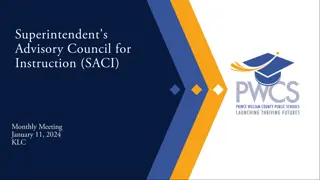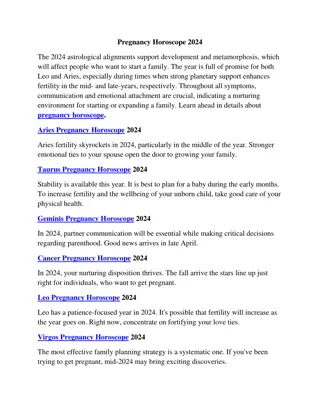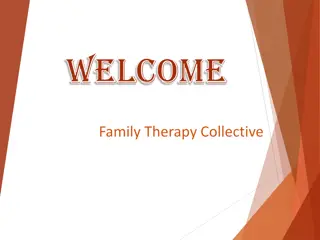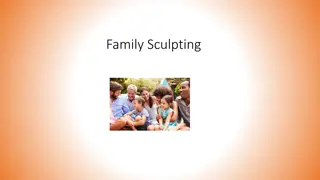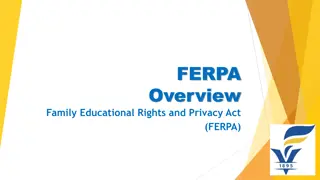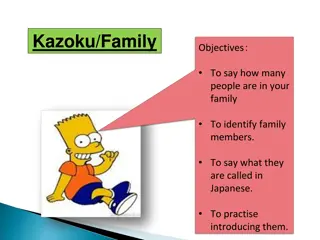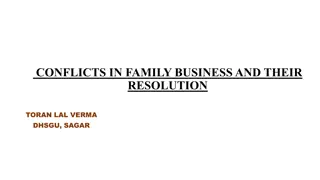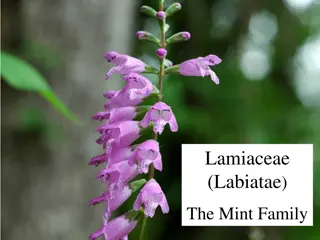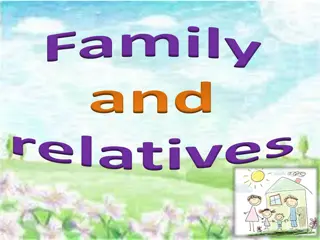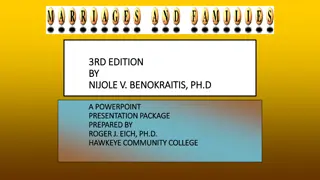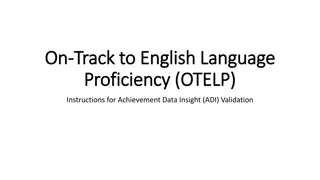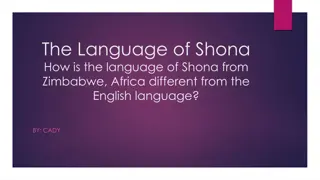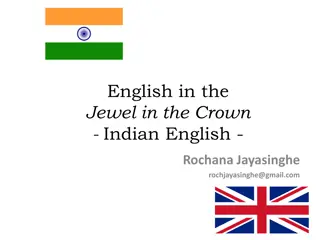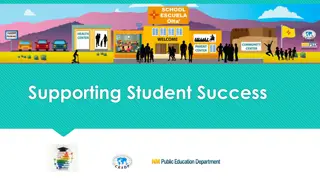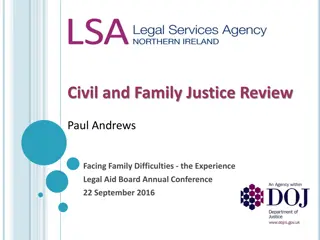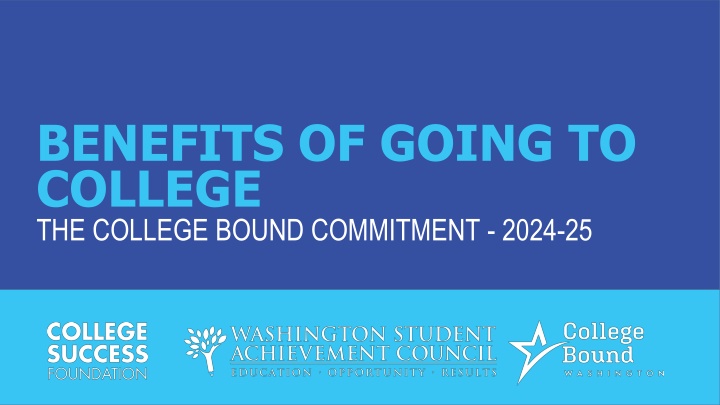
Benefits of Pursuing Higher Education and Career Opportunities
Explore the advantages of attending college, including increased earning potential, job options, and personal growth. Discover different types of colleges, apprenticeship opportunities, income levels based on education, financial aid options, and more to help you navigate your educational journey effectively.
Download Presentation

Please find below an Image/Link to download the presentation.
The content on the website is provided AS IS for your information and personal use only. It may not be sold, licensed, or shared on other websites without obtaining consent from the author. If you encounter any issues during the download, it is possible that the publisher has removed the file from their server.
You are allowed to download the files provided on this website for personal or commercial use, subject to the condition that they are used lawfully. All files are the property of their respective owners.
The content on the website is provided AS IS for your information and personal use only. It may not be sold, licensed, or shared on other websites without obtaining consent from the author.
E N D
Presentation Transcript
BENEFITS OF GOING TO COLLEGE THE COLLEGE BOUND COMMITMENT - 2024-25
WHO DO YOU KNOW THAT WENT TO COLLEGE?
WHY SHOULD I GO TO COLLEGE? More school = More $$$ Getting a college degree = More jobs to choose from A MAJORITY of jobs in Washington will require some college It s FUN and you get to meet new people from all over
AVERAGE INCOME BY EDUCATION LEVEL MORE SCHOOL MEANS MORE MONEY $55,016 $36,816 $46,748 $77,636 Less than high school High School Diploma Associate s Degree Bachelor s degree
WHAT TYPES OF COLLEGES ARE THERE? Community and Technical Colleges (CTCs) Private 2-Year Vocational /Trade College Public and Private 4-Year College Schools that offer associate s degrees, apprenticeships, and certificates including specific trades Schools provide education for a specific career. Schools offer bachelor s degrees, usually completed in 4 years of full-time study.
APPRENTICESHIP JOBS Pipe Fitter Cement Mason Flagger Painters Electrician Fire Fighter Truck Driver Welder Aircraft Mechanic Automotive Mechanic Brick layer Carpenter MORE SCHOOL MEANS MORE JOB OPTIONS ASSOCIATE DEGREE JOBS Culinary arts Paralegal Dental hygiene Cosmetology Computer Support Web Developer Registered nurse Cybersecurity Physical Therapist Radiologic Tech Electrical Drafter Electronic Engineer BACHELOR DEGREE JOBS Editor Foreign Services Officer Market Researcher Social Worker Marketing Exec Writer Community Organizer Teacher Marine Biologist Chemical Engineer App Developer
HOW DO I PAY FOR COLLEGE? MYTH: I can t go to college because it s too expensive. FACT: Financial Aid can help you pay for college. Financial Aid resources include any scholarship, grant, work study or loan offered to help meet your college expenses.
TYPES OF FINANCIAL AID 1 2 3 4 SCHOLARSHIPS: Money awarded based on academic or other achievement. WAYS TO PAY FOR COLLEGE GRANTS: A form of gift aid, usually based on financial need. WORK STUDY: A program that allows students to work on or off-campus to earn money. LOANS: Money you borrow and repay over time, with interest added in most cases.
WHAT IS COLLEGE BOUND (CB)? Early commitment of state financial aid to income-eligible 7th and 8thand some newly income-eligible 9th grade students to help pay for your education after high school. Combines with other state financial aid, like the Washington College Grant, to cover the average cost of tuition (at public college rates), some fees, and a small amount for books = commitment of funds. Not sure if you re enrolled? Check with your counselor!
ENROLLING IS A TWO-STEP PROCESS 1. Eligible public school students are automatically enrolled.* 2. by the college. Be accepted to and attend an eligible college or career training within one academic year of high school graduation to receive CB funds. WHO CAN GET COLLEGE BOUND? Be income-eligible for free and reduced-price lunch (FRPL) in 7th, 8th, or newly income- eligible in 9thgrade (Youth in foster care are eligible through high school graduation). STEP Complete the College Bound Student Requirements. Complete either the FAFSA or WASFA and meet income requirements; verified STEP
COLLEGE BOUND STUDENT REQUIREMENTS: Graduate with a 2.0 GPA or better from a WA high school or approved homeschool program for students attending a four-year school directly after high school There is NO GPA requirement for students who plan to attend a community college or technical school Have no felony convictions Be income eligible (verified with info from the FAFSA or WASFA) and this is updated annually Enroll in an eligible program within one academic year of high school graduation to meet the college enrollment deadline Meet the program s state residency standards
CB award amounts are based on eligibility and what type of college you go to. HOW MUCH WILL I GET? Most of the CB commitment will be funded by the Washington College Grant. The award amounts are based on: COLLEGE BOUND COMMITMENT $ AVERAGE COST OF TUITION (public rates) A SMALL AMOUNT FOR BOOKS SOME COLLEGE FEES
There are over 65 colleges, universities, and technical schools where you can use College Bound WHERE CAN YOU USE IT? And more... You can find a list online at www.wsac.wa.gov/sfa-institutions
A: B: C: PREPARE WHAT S NEXT? Be sure you take the right courses for graduation and college admission. PLAN Explore different school and job options with your counselor. APPLY FULFILL Apply in your senior year to eligible colleges and for financial aid with either the FAFSA or WASFA. Be sure you review the student requirements to receive College Bound
Must enroll in college within one year of high school graduation. NEED TO KNOW: CB can fund up to 6 years of college enrollment. A Bachelor s degree is the highest degree you can earn using CB funds. Maintain satisfactory academic progress with the college or program to receive CB funds. THERE ARE REQUIREMENTS BUT THERE S ALSO FLEXIBILITY! File the FAFSA or WASFA every year - income eligibility is checked each year of college.
GOT QUESTIONS ABOUT FINANCIAL AID OR COLLEGE? If you're not already getting messages, text us using the QR code or the number below: OtterBot is a free 24/7 texting service for WA HS students and their parents. Get instant answers on financial aid and college access anytime, anywhere!
High School Students & Parents: STAY CONNECTED! WERE YOU ENROLLED FOR COLLEGE BOUND IN 7TH, 8TH, OR 9THGRADE? WE NEED YOUR CURRENT CONTACT INFO! USE THIS QR CODE. IT ONLY TAKES A MINUTE.
These videos explain what College Bound is, how it can help you, and how to use it to prepare for education or training after high school. COLLEGE BOUND STUDENT VIDEOS A picture containing text, vector graphics Description automatically generated Available in English & Spanish! Learn about College Bound with our Short, Animated Videos bit.ly/cbvideospanish bit.ly/cbvideoenglish
CONTACT INFORMATION Phone: 1-888-535-0747 Option 1 Email: collegebound@wsac.wa.gov Not sure if you re enrolled? Check with your counselor!



